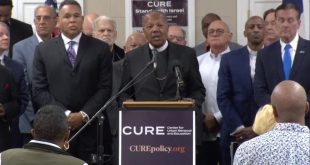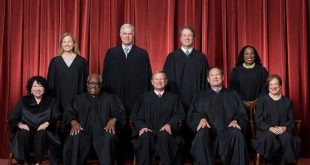The effects of the U.S. Supreme Court’s decision in Bostock v. Clayton County (2020) will reverberate throughout the country and across industries, public and private, for years to come.
The “conservative” high court ruled in Bostock that the Civil Rights Act of 1964 protects employees from discrimination based on sexual orientation and “gender identity.” The owner of a funeral home refused to allow a male employee to pretend to be a woman at work.
The Biden administration has cited this decision to reinterpret the word “sex” in Title IX of the Educational Amendments to include sexual orientation and “gender identity.” Such a change allows men access to women’s private facilities like restrooms and changing rooms. The reinterpretation will lead to schools allowing men to share college dorm rooms with women. The U.S. Department of Education already has sent “Dear Educator” letters to government schools warning them not to discriminate based on “gender identity.”
Battered women’s shelters are not exempt. Downtown Hope Center in Anchorage, Alaska, is in litigation to protect the women in their shelter from having to sleep near or change clothes in front of men pretending to be women. Some of the women in the shelter may have fled domestic violence.
Now two women in federal prison, Rhonda Fleming and Katoria Greene, have filed a lawsuit to bar male prisoners from sharing showers and other intimate facilities with them. The women — black conservative Christians — allege that the prison is violating their bodily privacy rights. They said that many of the men housed with them are openly bisexual. From the press release:
The women state their right to free exercise of religion is being violated because they cannot practice a tenet or principle of their faith, modesty, with male prisoners living with them, 24 hours a day, within 2 or 3 feet, when women are changing their clothing or showering. Many of the women fear for their safety.
“The rights of male prisoners to identify as being ‘women’ are more important to the federal government than women’s rights and the free exercise of religion,” stated Ms. Fleming, who has been challenging this policy for six years.
 CURE News and Clergy Blog News and Commentary for Christians
CURE News and Clergy Blog News and Commentary for Christians



